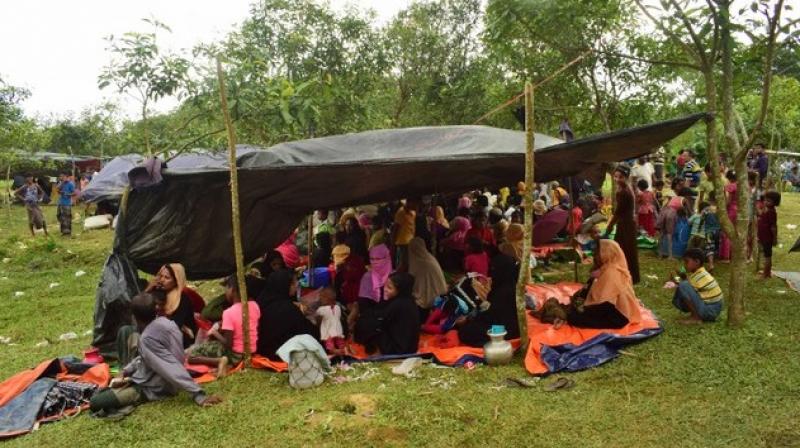Talks on to 'settle issues' over repatriation of Rohingya refugees to Myanmar
In December 2017, Bangladeshi officials said they had sent a list of 100,000 names to Myanmar for the first round of repatriation.

Yangon: Talks were held on Monday to "settle issues" over the repatriation of Rohingya refugees to Myanmar, Bangladeshi officials told AFP, as doubts linger over how many of the 655,000 Muslim minority who fled violence are likely to return.
Under diplomatic pressure, Myanmar has vowed to repatriate refugees driven into Bangladesh by an army crackdown in 2017, if they can verify they belong in western Rakhine state.
But aid agencies question how many Rohingya, a Muslim minority reviled inside Myanmar, will be able to prove their residence given the speed of their flight and complexity of their status in Myanmar.
Most Rohingya refugees in the Bangladeshi camps also say they will not return to a state where their villages have been torched and where they allege atrocities by the army and ethnic Rakhine locals.
Officials from the two countries met in Naypyidaw on Monday to "settle issues" related to repatriation, two Bangladeshi officials familiar with the talks told AFP, requesting anonymity and without giving specific details.
The two governments signed an agreement in November paving the way for repatriations from January 23.
The deal applies to Rohingya who fled Myanmar in two major outbreaks of violence since October 2016.
It does not cover an estimated 200,000 Rohingya refugees who were living in Bangladesh prior to that date.
In December 2017, Bangladeshi officials said they had sent a list of 100,000 names to Myanmar for the first round of repatriation.
Myanmar is yet to publicly endorse the list or even confirm it has received the names.
But the country is on track for the January 23 deadline, the state-backed Global New Light of Myanmar reported Monday, adding building work is ongoing at the 124-acre Hla Po Khaung "temporary camp" in Rakhine's Maungdaw district.
Eventually the site "will accommodate about 30,000 people in its 625 buildings" before they can be resettled permanently.
The report did not mention the Rohingya -- who are denigrated by many in Myanmar as "Bengali" immigrants and mostly denied citizenship.
Tens of thousands of Rohingya have languished in squalid IDP camps inside Rakhine after earlier unrest in 2012, raising fears that any returnees from Bangladesh will be thrust into a similar limbo.
Diplomats have also cast doubt on Myanmar's willingness to allow substantial numbers of Rohingya back after an intense army campaign forced over half their number out.
In an unprecedented statement last week, Myanmar's army admitted security forces took part in the extra-judicial killings of 10 Rohingya in their custody at Inn Din village.
Amnesty International called the admission "the tip of the iceberg" of alleged massacres, rapes and arson attacks on Rohingya villages carried out in the weeks after August 25.
Myanmar's army defends its 'clearance operations' as a legitimate response to deadly raids by Rohingya militants.

